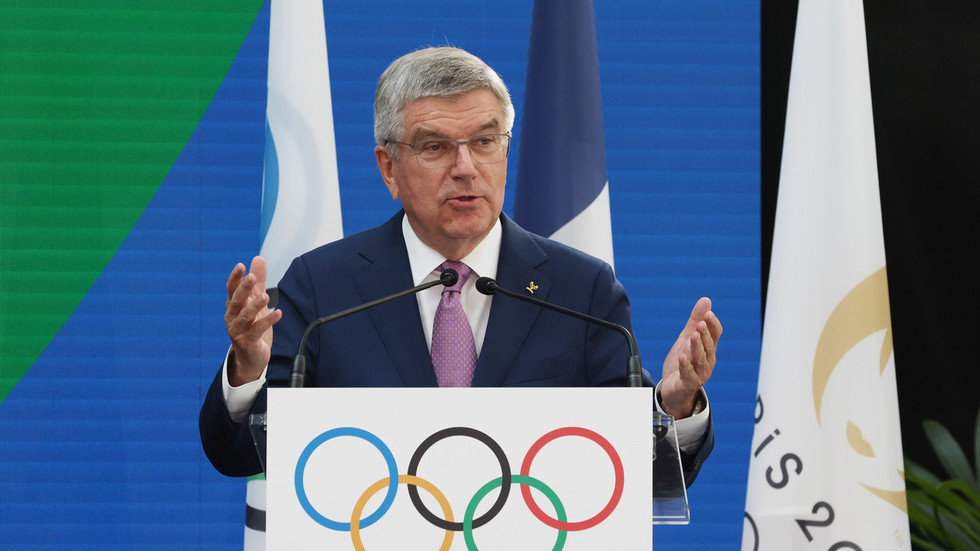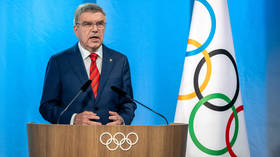
Moscow has slammed the decision by calling it “double standards” and “segregation”

FILE PHOTO: International Olympic Committee (IOC) President Thomas Bach © Global Look Press / Gao Jing
The International Olympic Committee (IOC) has decided to suspend the Russian Olympic Committee “until further notice” over the ongoing conflict between Moscow and Kiev, the international sports body said in a statement on Thursday. It also stated that it would make decisions on the participation of individual Russian athletes in the 2024 Olympic Games in France and the 2026 Winter Olympics in Italy “at the appropriate time.”
The IOC’s decision bars the Russian committee from representing the country as a national Olympic body and getting any funding from the Olympic Movement, the statement said, adding that all previous recommendations made by the international body continue to apply. The IOC executive board noted that it reserved the right to take any further measures against Russia “depending on the development of this situation.”
In September, IOC President Thomas Bach said that Russian and Belarusian athletes could be allowed to participate in the 2024 Olympic Games if they “do not support the war and are not linked to the military, or to other services that are in Russia or Belarus,” though they would have to compete under a neutral flag and not as representatives of their respective countries. Bach also brushed off Kiev’s demand for a blanket ban on Russian and Belarusian athletes at the time by calling it “not possible.”

Read more
Moscow criticized the Thursday decision by the IOC to suspend the Russian Olympic Committee by calling it “destructive.” Such actions “disrupt international sports cooperation and [violate] … the principles of the Olympic Movement,” Russian Foreign Ministry spokeswoman Maria Zakharova said in a statement.
She also described the decision as “politically motivated” and instigated by Washington. “Double standards [and] deliberate segregation along the lines of nationality demonstrated by the IOC leadership are a blatant violation of the rights of Russian athletes and ultimately a violation of basic human rights,” Zakharova said, adding that Moscow would use “all international legal instruments to defend the rights of [Russian] athletes.”
In September, the Olympic chief rejected the notion that sports had nothing to do with politics, calling this line of thinking “a lie of the past by some sports officials.” He said that his job was to engage in “dialogue with politics” to supposedly ensure that the autonomy and neutrality of sports is respected.




